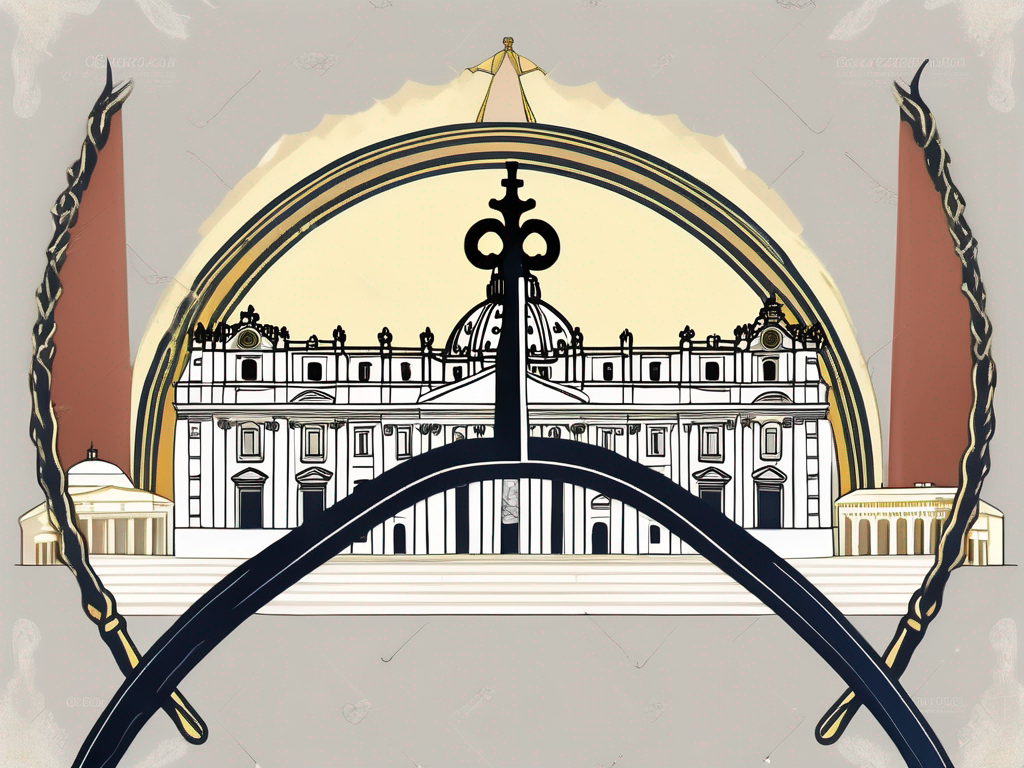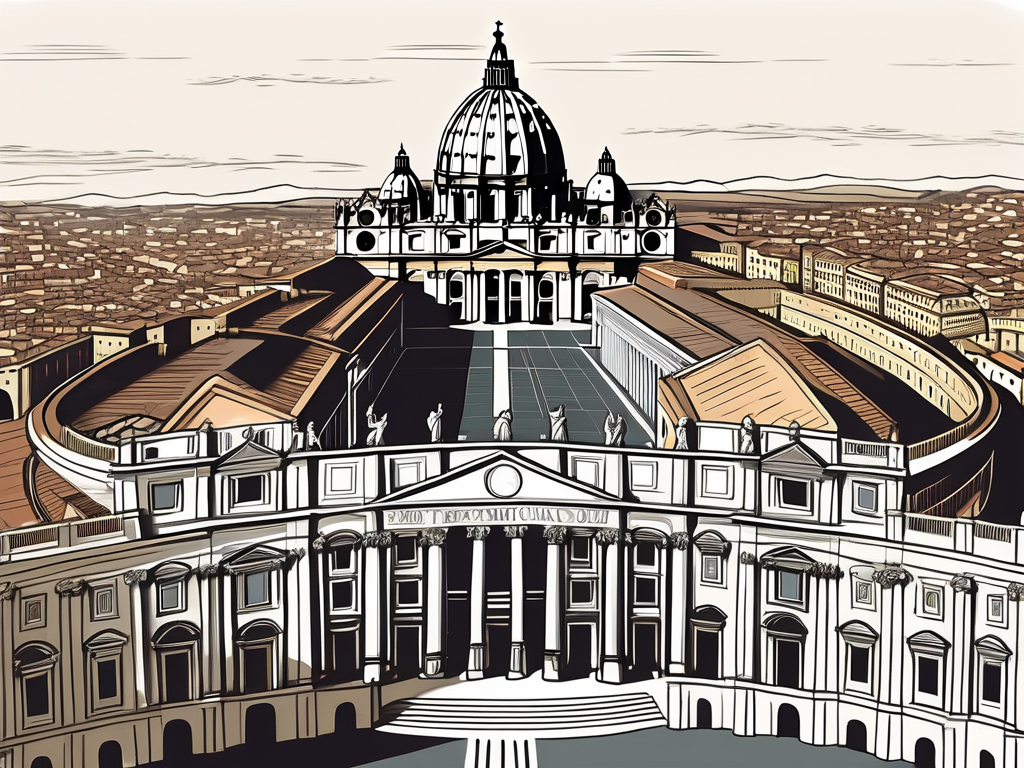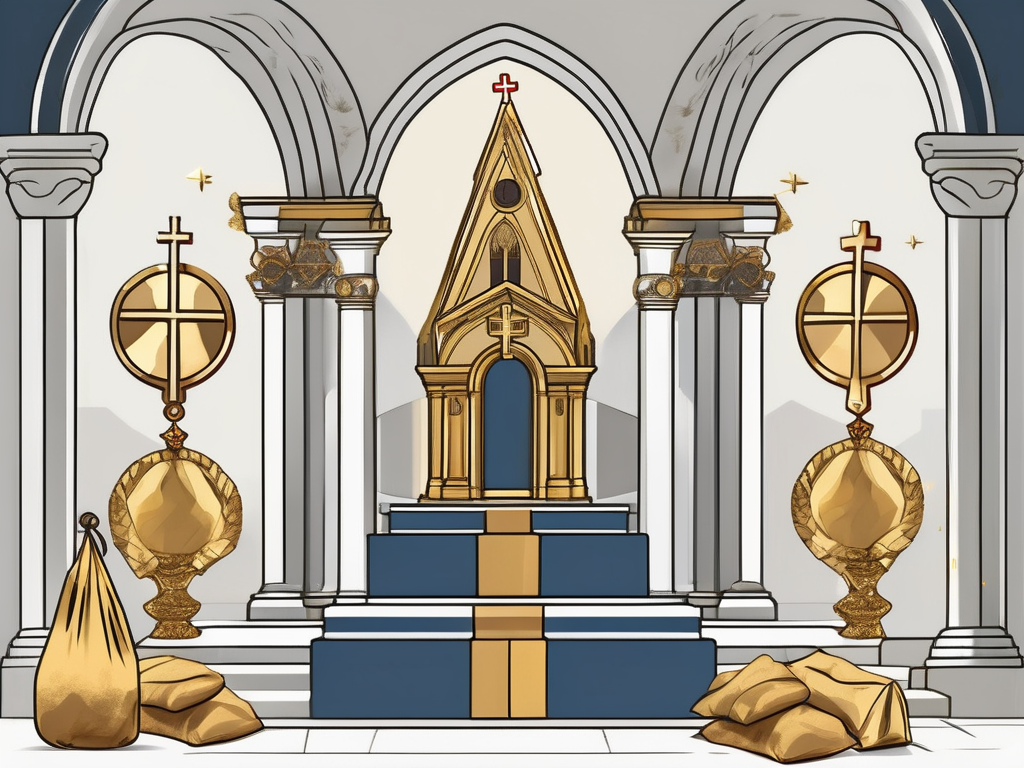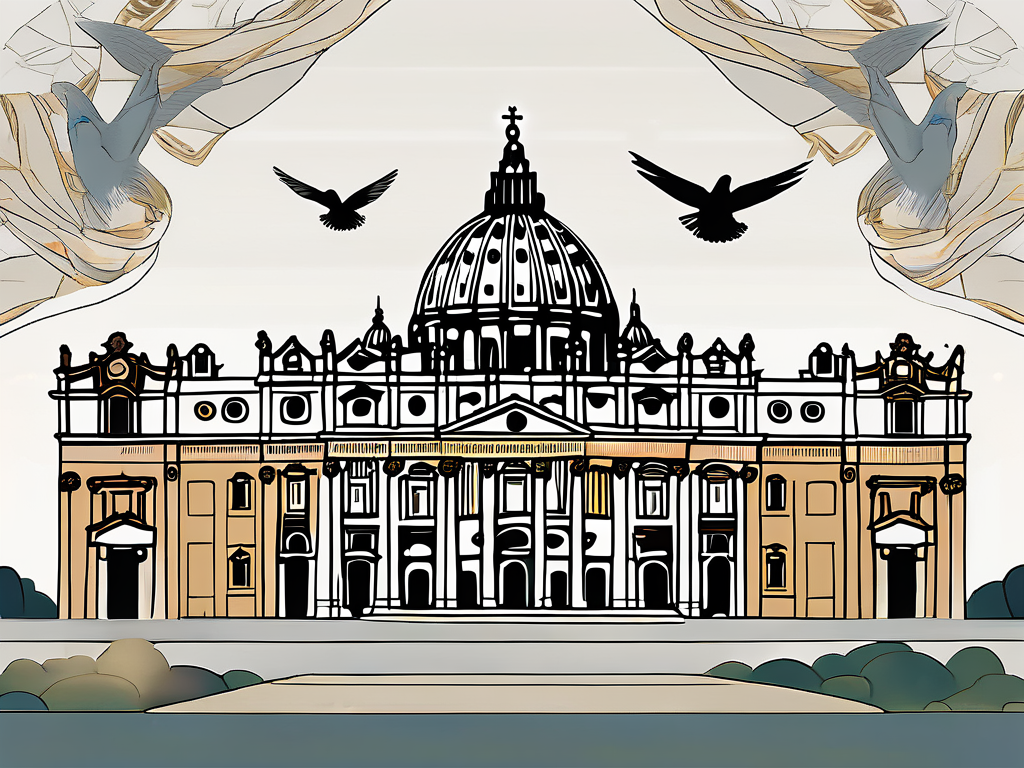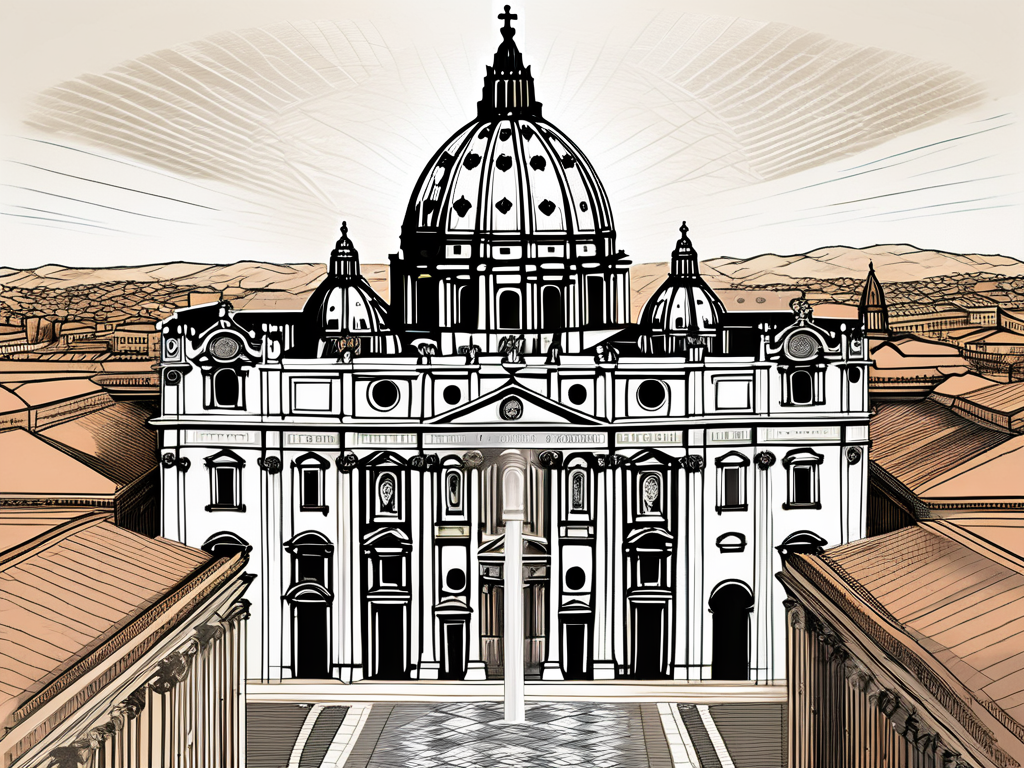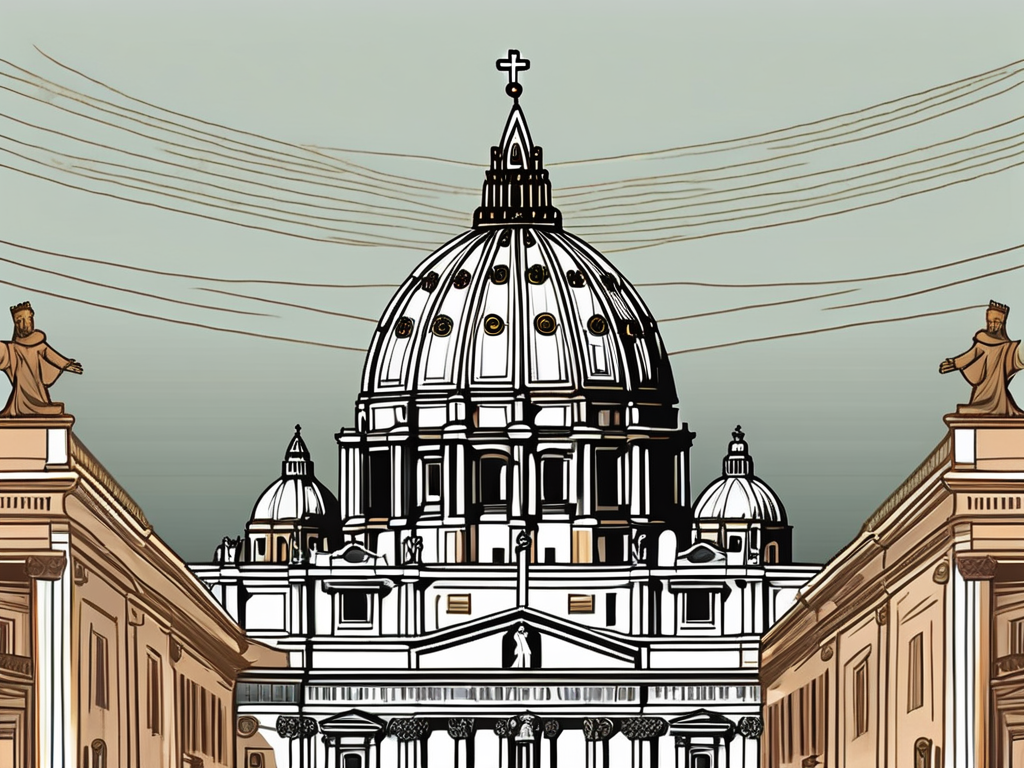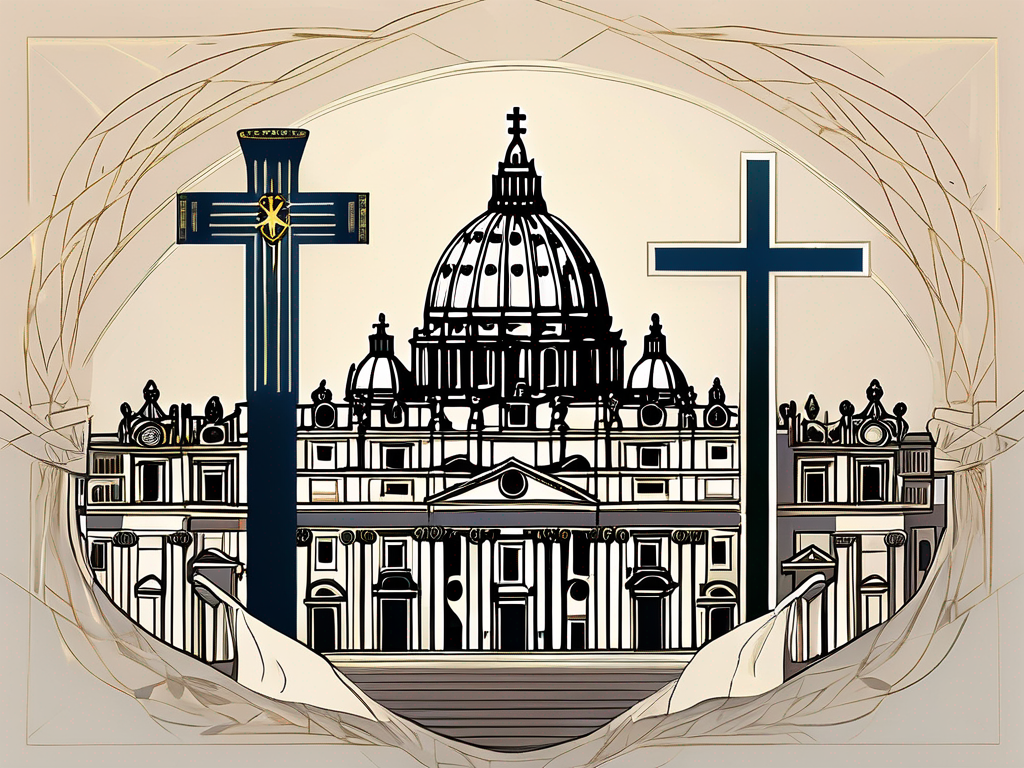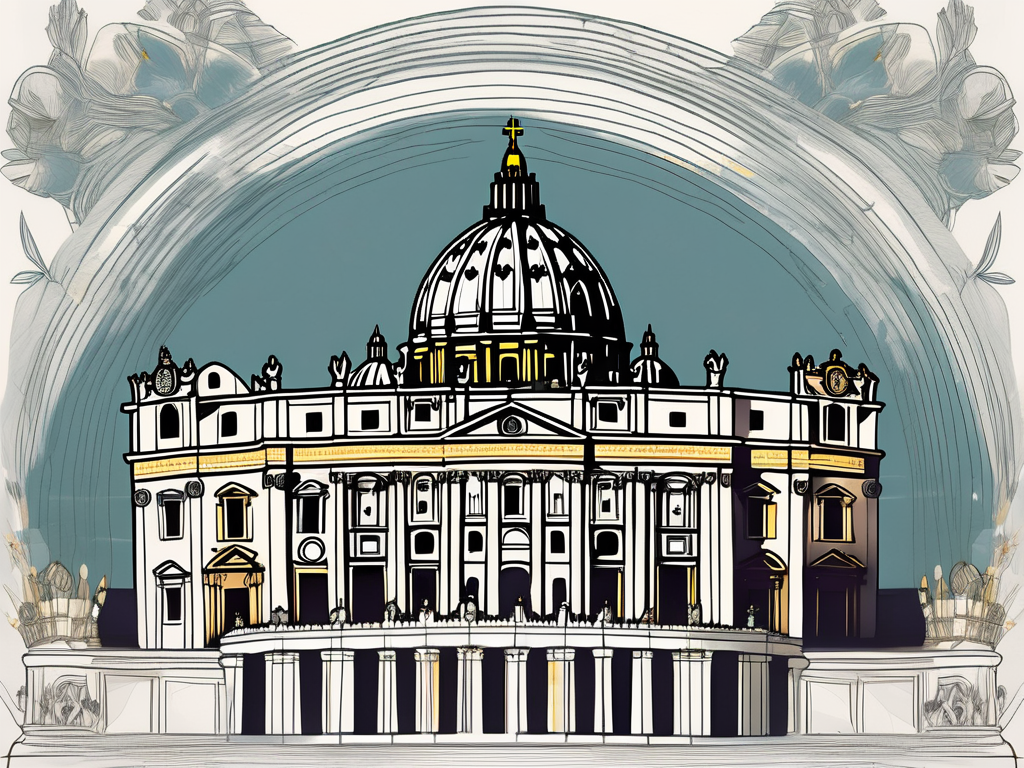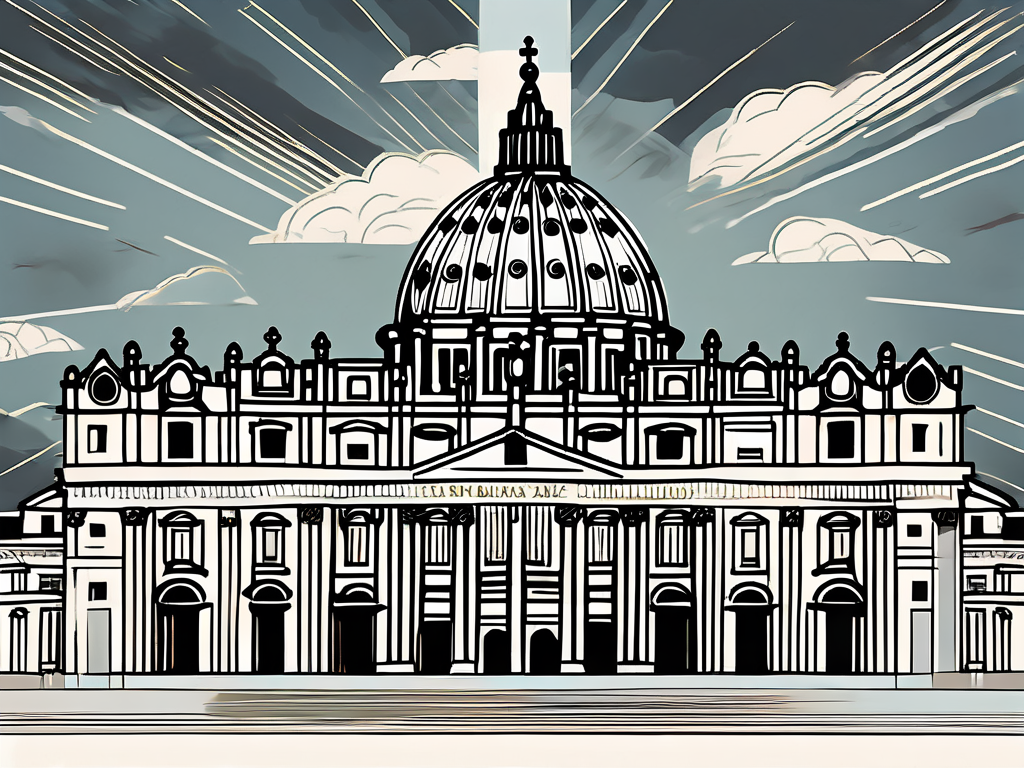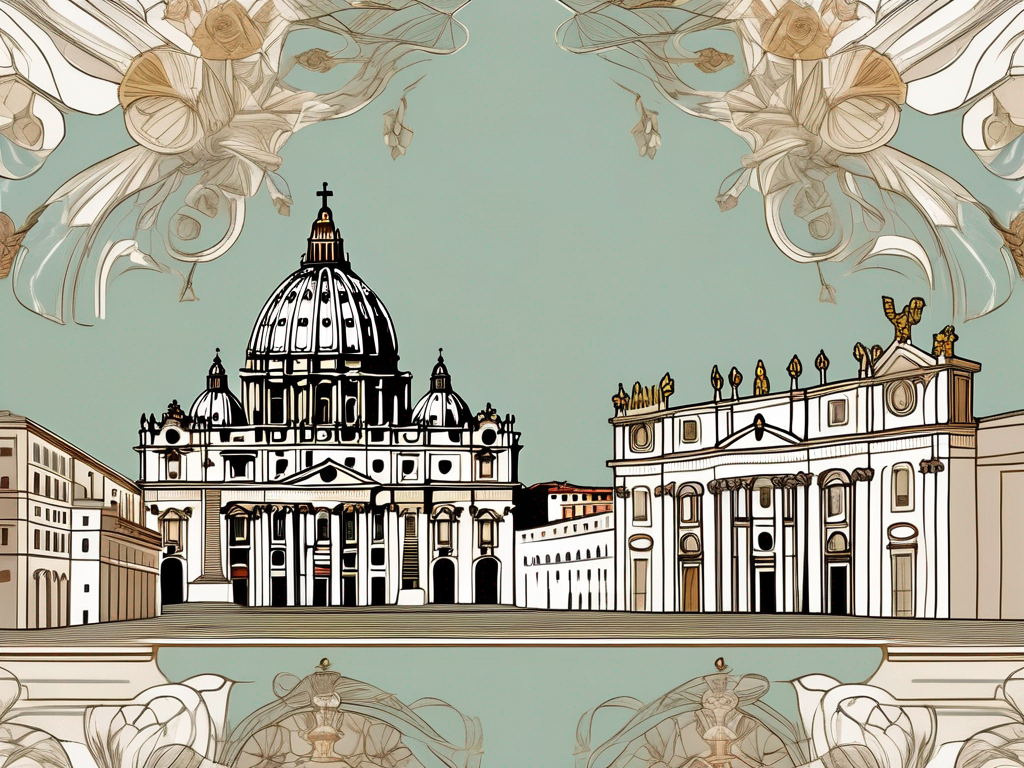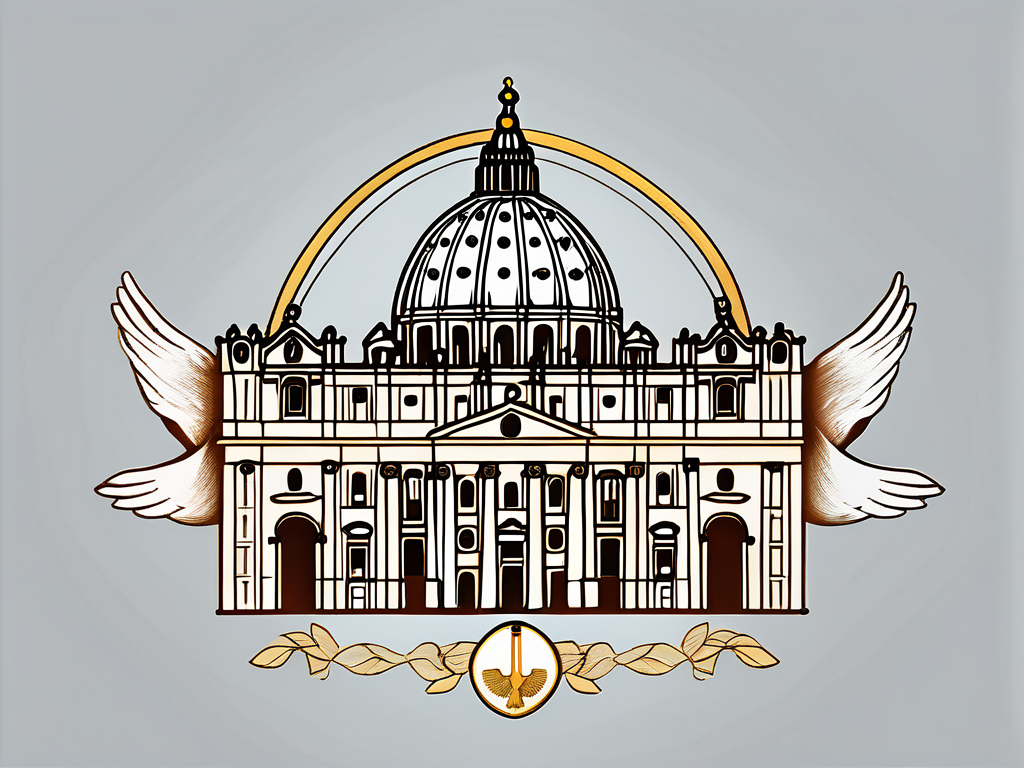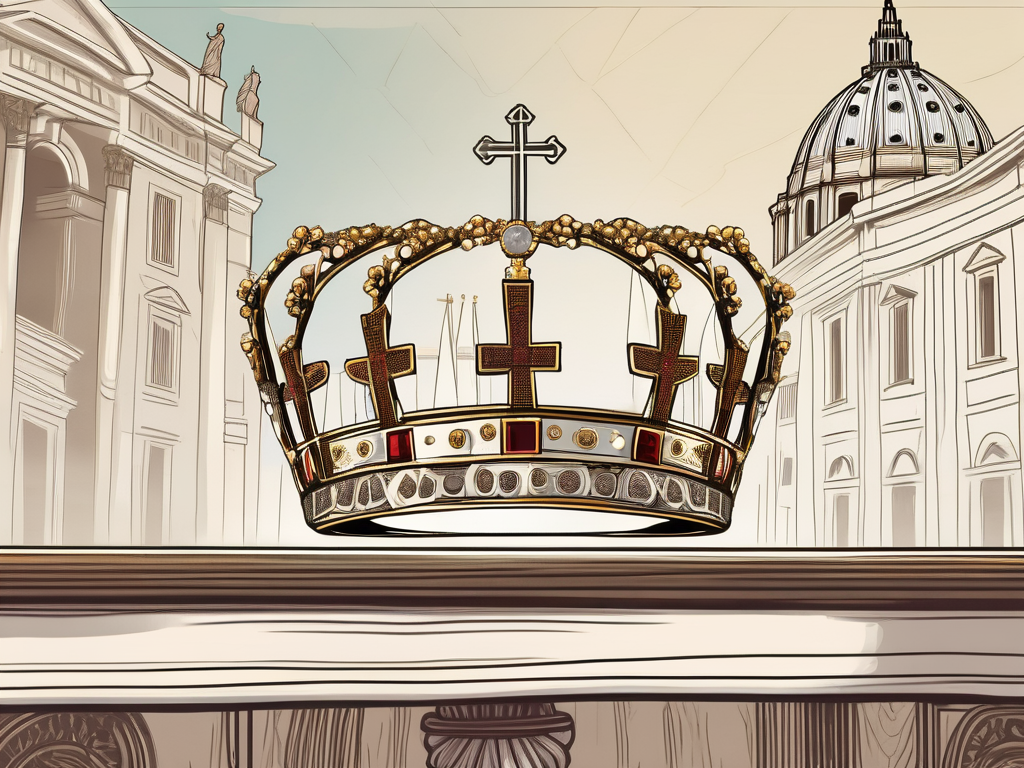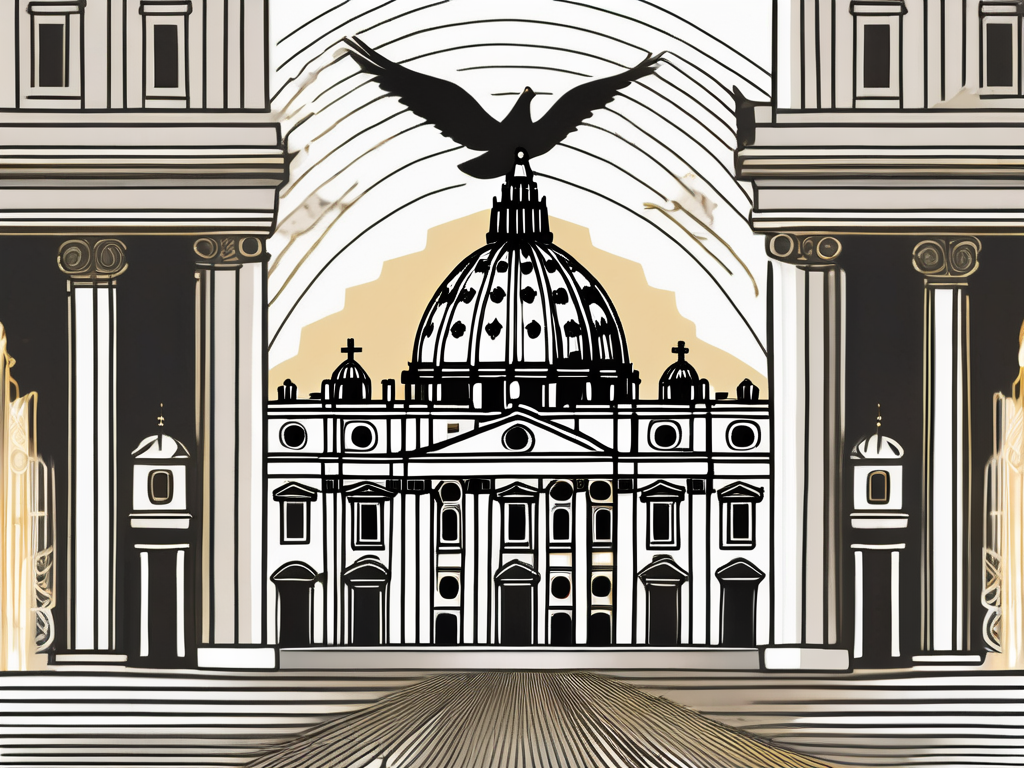Pope Nicholas III, born Giovanni Gaetano Orsini, was a prominent figure in the history of the Catholic Church. From his early life to his ascension to the papacy and his major contributions, Nicholas III left an indelible mark on the Church. However, his journey was not without controversies and challenges. In this article, we will delve into the various aspects of his life and explore his lasting legacy.
Early Life and Education of Pope Nicholas III
Let’s start by taking a look at the early life and education of Pope Nicholas III. Born into the noble Orsini family in Rome, Italy, Nicholas had a rich background. He came from a long line of influential individuals who had played significant roles in both religious and secular affairs.
As a young child, Nicholas showed great promise and a strong inclination towards the religious life. His family recognized his potential and ensured he received a proper education. Nicholas studied theology and philosophy at renowned institutions, soaking up knowledge and deepening his understanding of the Church’s teachings.
Birth and Family Background
Nicholas III was born in Rome in the year 1216. His family, the Orsini, were well-known in the papal courts and played vital roles in the Church’s affairs. Growing up in such a prestigious environment certainly influenced his path towards the priesthood.
The Orsini family had a long history of devotion to the Catholic faith. They were known for their unwavering commitment to the Church and their active involvement in religious matters. This familial background instilled in Nicholas a sense of duty and a deep respect for the papacy.
Education and Early Religious Inclination
During his formative years, Nicholas developed a strong religious inclination. He embraced his family’s Catholic faith and demonstrated a deep devotion to God. Recognizing his potential, his family provided him with an excellent education, which laid the foundation for his future endeavors within the Church.
Nicholas’s education was not limited to the theoretical aspects of theology and philosophy. He also received practical training in the religious rituals and practices of the time. This comprehensive education allowed him to develop a well-rounded understanding of the Church’s teachings and prepared him for the challenges he would face as a future pope.
Throughout his studies, Nicholas was known for his exceptional intellect and his ability to engage in theological debates. He eagerly participated in discussions with his peers and mentors, constantly seeking to expand his knowledge and deepen his understanding of the Catholic faith.
As he delved deeper into his studies, Nicholas became increasingly aware of the complexities and intricacies of the Church’s doctrines. He grappled with theological questions and sought answers through rigorous intellectual inquiry and prayerful contemplation.
It was during this time that Nicholas also developed a keen interest in canon law. He recognized the importance of understanding the legal framework within which the Church operated and dedicated himself to studying the intricacies of ecclesiastical law.
Nicholas’s education was not solely focused on academic pursuits. He also received spiritual guidance from renowned theologians and spiritual leaders of the time. These mentors played a crucial role in shaping his spiritual journey and providing him with the necessary guidance to navigate the challenges that lay ahead.
Overall, Nicholas’s early life and education laid a solid foundation for his future role as Pope Nicholas III. His noble lineage, combined with his exceptional education and unwavering devotion to the Catholic faith, positioned him as a prominent figure within the Church and set the stage for his eventual ascension to the papacy.
Ascension to Papacy
Early Church Career
Before his election as Pope, Nicholas III had a notable career within the Church. He served in various influential positions, gaining invaluable experience and recognition. His dedication and competence in matters of faith earned him the respect of his peers.
Throughout his early Church career, Nicholas III demonstrated a deep commitment to the teachings of Christ. He immersed himself in theological studies, delving into the intricacies of scripture and doctrine. His thirst for knowledge led him to engage in rigorous debates with fellow theologians, sharpening his understanding of the faith.
As he ascended through the ranks of the Church hierarchy, Nicholas III became known for his compassionate nature and unwavering commitment to the well-being of the faithful. He tirelessly worked to address the spiritual needs of the community, offering guidance and solace to those in need. His genuine empathy and ability to connect with people from all walks of life endeared him to many.
Election and Papal Coronation
In the year 1277, Pope Nicholas III was elected to lead the Catholic Church. His papal coronation marked the beginning of his time as the Vicar of Christ. With his extensive knowledge and unwavering faith, he embarked on a journey to bring about important changes within the Church.
The election of Nicholas III as Pope was a momentous occasion for the Catholic faithful. His reputation as a devout and knowledgeable servant of God made him a natural choice to guide the Church through the challenges of the time. As news of his election spread, believers from all corners of the world rejoiced, hopeful for a new era of spiritual growth and renewal.
The papal coronation ceremony was a grand spectacle, attended by dignitaries and clergy from far and wide. The air was filled with anticipation as Nicholas III, dressed in the traditional papal regalia, ascended to the throne of St. Peter. The solemnity of the occasion was palpable, as the weight of his new responsibilities settled upon his shoulders.
During his papal coronation, Nicholas III delivered a heartfelt address, outlining his vision for the Church and expressing his deep gratitude for the trust placed in him. He spoke of the need for unity, compassion, and a renewed focus on the core teachings of Christ. His words resonated with the gathered faithful, igniting a sense of hope and inspiration.
With his papal coronation complete, Pope Nicholas III embarked on his pontificate with a sense of purpose and determination. He understood the challenges that lay ahead, but his unwavering faith and steadfast commitment to the Church’s mission would guide him through the trials and tribulations that awaited.
Major Contributions as Pope
Church Reforms and Policies
As Pope, Nicholas III implemented important church reforms and policies. In an effort to strengthen the Church’s influence and authority, he sought to improve the moral conduct of the clergy. Nicholas emphasized the importance of integrity and virtuous behavior, aiming to restore trust and confidence among the faithful.
Under Nicholas III’s leadership, the Church implemented a series of measures to address the issues of corruption and misconduct within the clergy. He established stricter guidelines for the selection and training of priests, ensuring that only those individuals with strong moral character and a genuine calling to serve God were ordained.
In addition to focusing on the clergy, Nicholas III also prioritized the spiritual well-being of the laity. He encouraged the faithful to actively participate in the sacraments, emphasizing the transformative power of the Eucharist and the importance of regular confession. Through his teachings and pastoral care, Nicholas III sought to deepen the spiritual connection between the Church and its followers.
Diplomatic Relations and Peace Efforts
Another notable aspect of Nicholas III’s papacy was his dedication to diplomatic relations and peace efforts. He recognized the importance of fostering positive relationships with secular powers and mediated disputes between warring factions. His commitment to diplomacy led to significant strides in achieving peace within the regions under the Church’s influence.
Nicholas III actively engaged in diplomatic negotiations, using his position as Pope to bring conflicting parties to the negotiating table. His diplomatic skills and impartiality earned him the respect and trust of both rulers and common people alike. Through his tireless efforts, he was able to resolve long-standing conflicts and prevent further bloodshed.
Furthermore, Nicholas III played a crucial role in promoting interfaith dialogue and understanding. He recognized the need for peaceful coexistence between different religious communities and worked towards fostering mutual respect and tolerance. His efforts in this regard not only brought about greater harmony among different religious groups but also strengthened the Church’s position as a promoter of peace and unity.
During his papacy, Nicholas III also focused on improving the living conditions of the poor and marginalized. He established charitable institutions and encouraged the clergy and laity to actively participate in acts of charity and social justice. His commitment to addressing social inequality and promoting the dignity of every human being reflected the core teachings of Christianity.
In conclusion, Nicholas III’s papacy was marked by his unwavering commitment to church reforms, diplomatic relations, and peace efforts. Through his leadership, the Church experienced a renewed sense of moral integrity and played a significant role in promoting peace and justice in a turbulent world.
Controversies and Challenges
Political Intrigues and Opposition
Like many leaders, Nicholas III faced political intrigues and opposition during his papacy. Some factions within the Church and secular powers were critical of his policies and decisions. However, Nicholas remained steadfast in his commitment to his vision, navigating the challenges with resilience.
Health Issues and Personal Struggles
Throughout his papacy, Nicholas III also faced health issues and personal struggles. Despite these challenges, he remained devoted to his role as the head of the Catholic Church and continued to carry out his duties diligently. His unwavering commitment was an inspiration to many.
Death and Legacy
Final Years and Death
In his final years, Nicholas III faced declining health, yet he remained dedicated to his responsibilities. He passed away in 1280, leaving behind a legacy that would influence the future of the Catholic Church.
Impact on the Catholic Church
Nicholas III’s papacy left a lasting impact on the Catholic Church. His reforms and policies set the stage for future advancements and shaped the Church’s trajectory. His emphasis on morality and integrity within the clergy laid a foundation for the Church’s unwavering commitment to its principles.
Influence on Future Popes and Church Doctrine
The contributions of Pope Nicholas III extended beyond his time as the Vicar of Christ. His teachings and actions influenced future popes and shaped church doctrine. His dedication to diplomacy and peace efforts set an example for leaders within the Church, emphasizing the importance of maintaining balanced relationships with secular powers.
In conclusion, Pope Nicholas III’s life and legacy are a testament to his unwavering faith and dedication to the Catholic Church. From his early years and education to his ascension as Pope and subsequent contributions, his influence on the Church remains significant. Despite facing controversies and challenges, Nicholas III’s impact on the Catholic Church can still be felt today, ensuring his memory and legacy endure.
